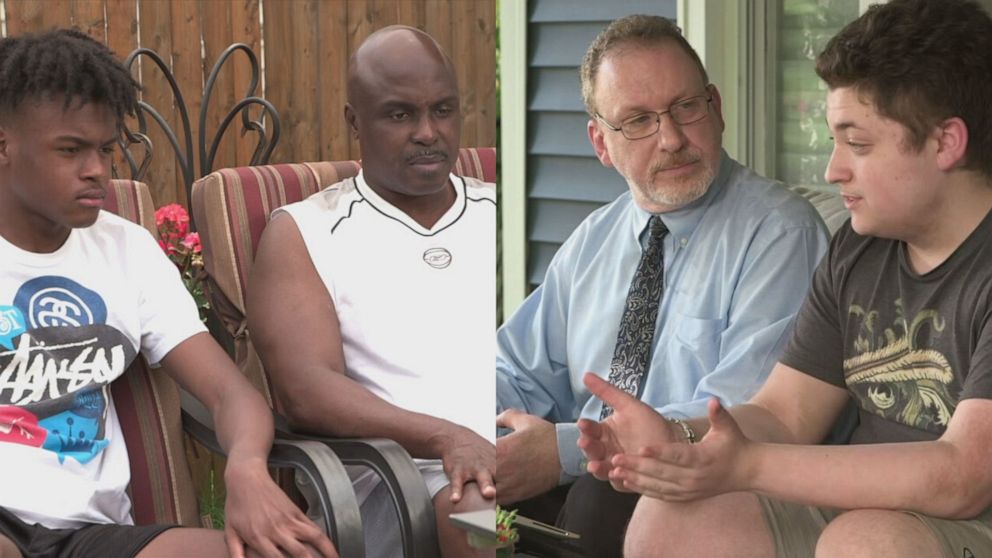How two fathers and their teenage sons are talking about race in America
For Solomon Jones Jr., a Black father, difficult conversations with his son aren’t optional. They’re essential.
“The talk,” a discussion Black parents have had with their children for generations, is now rooted in a new sense of urgency as the list of Black men and women known to be killed by police continues to grow.
In recent weeks, Americans of all races, from coast to coast, have taken to the streets demanding racial equality and justice.
At a time when many across this country are wondering if recent events will be a catalyst for progress, “Nightline” spent time with two families – one Black, one white – to discuss race and policing in America.
Watch the full story on "Nightline" TONIGHT at 12:05 a.m. ET on ABC
Solomon Jones III and Aidan Kaye are teenagers growing up in middle class households in the Philadelphia area. Their fathers, Solomon Jones Jr. and Daniel Kaye are both middle class, married and college educated. The Kaye family is white and the Jones family is Black.
“Nightline” first met them six years ago when both boys were just 10 years old.
It was December 2014 and the U.S. was erupting in protest and anger over the police-involved deaths of Michael Brown in Ferguson, Missouri, and Eric Garner in New York City.
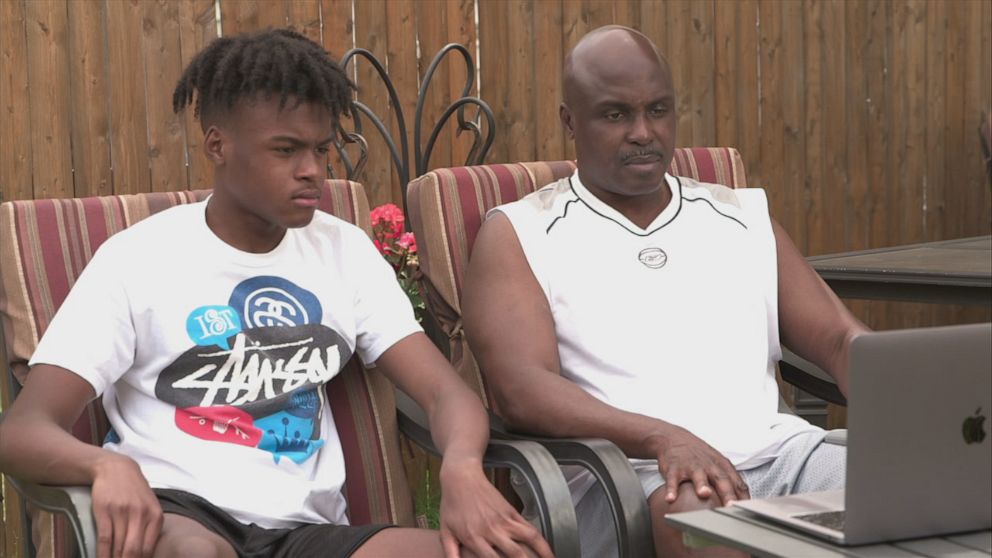
The news prompted Aidan to ask his father questions about the protests and unrest: “Dad, what’s going on in Ferguson?”
“You can't say, you know, all police are this or all police are that, you know, they're our friends and they work really hard to protect our community. But you know, you have to be honest that there are problems,” Kaye told his son in 2014.
For dad Solomon Jones Jr., a popular radio host, the race talk has always been a running dialogue with his son. He is innately aware of the statistic that Black men are 2.5 times more likely to be killed by police than white people, according to a study by Proceedings of the National Academy of Sciences.
“If you get stopped by the police, even if you feel like they stopped you for no reason -- like harassing you. Just be polite,” he told his son in 2014. “Just get out of the situation so you can come home, and then we can file charges against them later.”
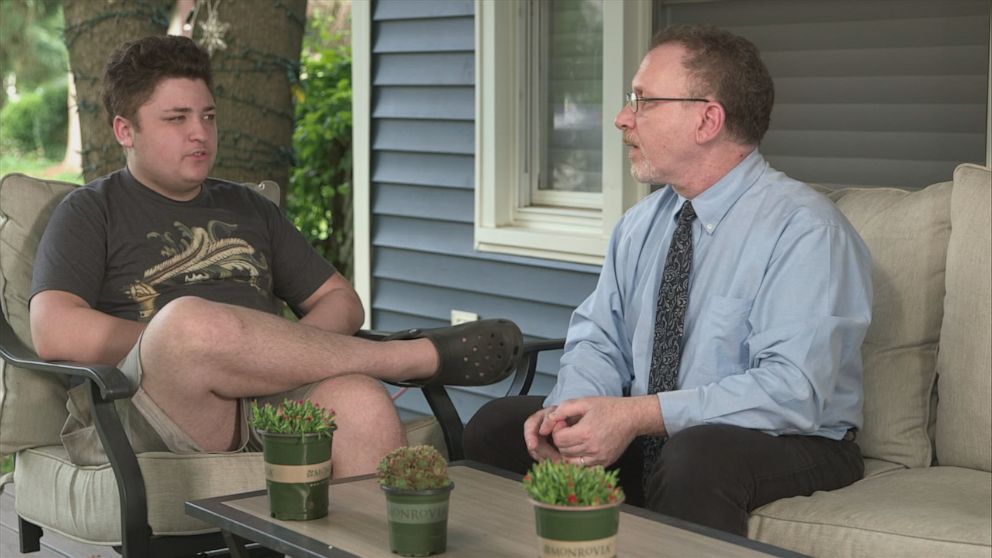
Jones Jr. also asked his son how Eric Garner’s death made him feel.
“It made me feel sad because they already had it on tape and the people who were examining the body counted it as a homicide and the policeman didn't get in trouble,” Solomon said.
Solomon’s father asked him why he believed that happened to Garner.
“Because the policeman hated, like, African Americans,” Solomon responded.
Nearly two years later, in July 2016, Nightline revisited the Kaye and Jones families. This time, the names in the headlines were Alton Sterling and Philando Castile -- both of whom were shot and killed by police only one day apart.
While Aidan said he knew about the shootings, he hadn’t seen the videos. But Solomon did.He said the news of their deaths hit him “pretty hard.”
“It was like, I guess, sad to think about like, what if that happened to my dad?” he said.
Today, in the wake of George Floyd’s death, Solomon is still asking that same question, worried that his father could become a statistic.
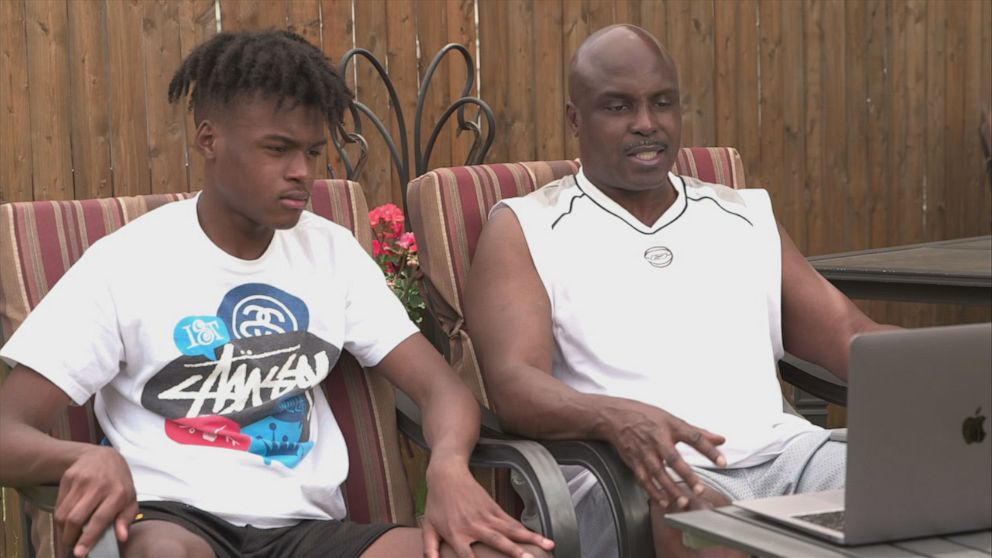
“I think about you and I’m worried for my friends, too, because when they get stopped, if they get stopped, I hope they don’t get hurt,” Solomon said.
He’s now 15, his age marked by a deeper voice but also by growing wisdom. Aidan’s naivete is gone too.
“I was looking back at the previous times that we were on [“Nightline”], and I saw myself as more of like a happy sort of, you know, just kind of giggly [person] but not really understanding what was going on,” Kaye said. “As I've gotten older, I've become much more aware of what's going on.”
Just like the country’s racial divide, these two families see the exact same events through very different lenses -- their differing life experiences.
“I thought about what I told [you], if you have an encounter with the police, your job is to live through the encounter.” Jones Jr. said, speaking to his son.
“Then I thought about how George Floyd was cooperative and he still died. So it’s like, what do we do?” he said. “They look at you and they just see a young Black man and whatever prejudice they bring to that, you know, that’s what they bring.”
Daniel Kaye told “Nightline” he’s watched the George Floyd video more than once.
“That video was so jarring that I needed to see it, I need to remember it,” he said. His son also said he “made a point to familiarize” himself with what happened.
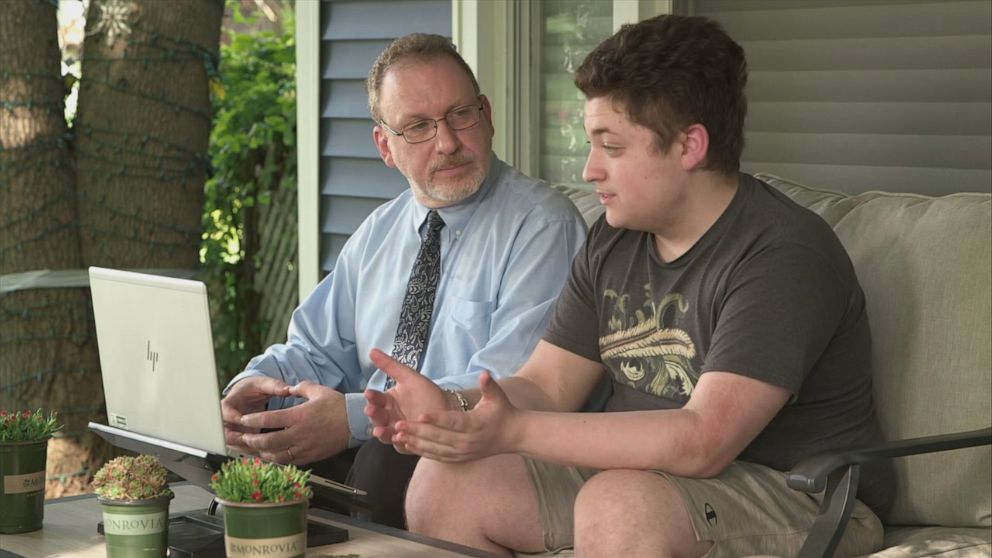
Kaye said that what made Floyd’s death so disturbing was “the officer on top of [Floyd] and just looking with his hands in his pockets. There didn't seem to be any compassion for what was happening.”
Kaye said he feels it’s important that the country does not accept this as “just another story in the news.” [This] just illustrated what we've heard from, you know, for years of the challenges that the African-American community has again and again. And, you know, we need to face it. We need to be aware of these things.”
Jones Jr. says he’s only seen parts of the Floyd video. “It’s hard for me to watch 9 minutes of a person dying,” he said.
His son feels the same way.
“It hurts to see a Black man like me, have somebody’s knee on the neck for nine minutes,” Solomon said.
The Jones family has dealt with violence on a personal level.
“My friend got shot and killed in South Philadelphia,” Solomon told “Nightline.” “He got into an argument with somebody and [that] person pulled out a firearm.”
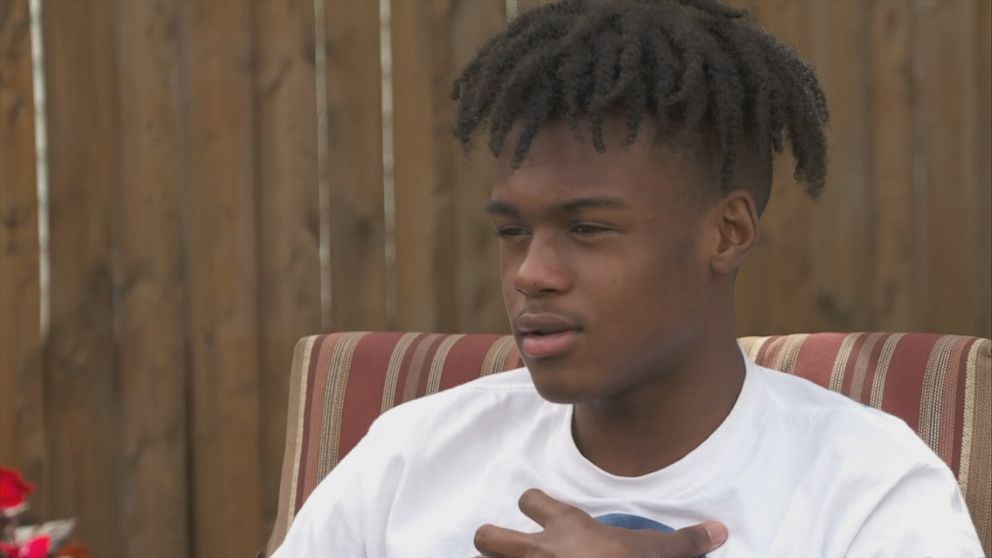
His father said hearing what happened to his son’s friend “hurt, but it scared me into action.”
“We started an organization called ManUpPHL,” Jones Jr. said.
Kaye acknowledges that the simple fact that his son is white gives him an advantage over a Black boy the same age, like Solomon.
“It breaks my heart,” Kaye said.
His son Aidan added, “I know as a white person, I will likely never experience the same level of discrimination and fear that Black people in our country and in different places all around the world do….the least I could do is support and listen.”
Both families know that the first step towards change begins with action.
We are going to do whatever we can to make sure that this system changes. You can't have DA’s having secret grand jury testimony around police killings. You can't have police investigating themselves around these killings. You can't have the qualified immunity….Those things need to change. The arbitration process, all of it has to change. And in order for that to change, we have to vote. We have to protest” Jones Jr. said.
“I don't remember any part of my life where I felt as hopeless and as determined that this cannot continue.” Kaye said. “I don't think that if all of us just go back to our homes, that everything's gonna be fine. I know that's not the truth.”
Young Solomon feels the urgency, too.
“The people before my generation did everything they could to avoid it,” he said. “And I feel like it's our responsibility to carry it on.”
